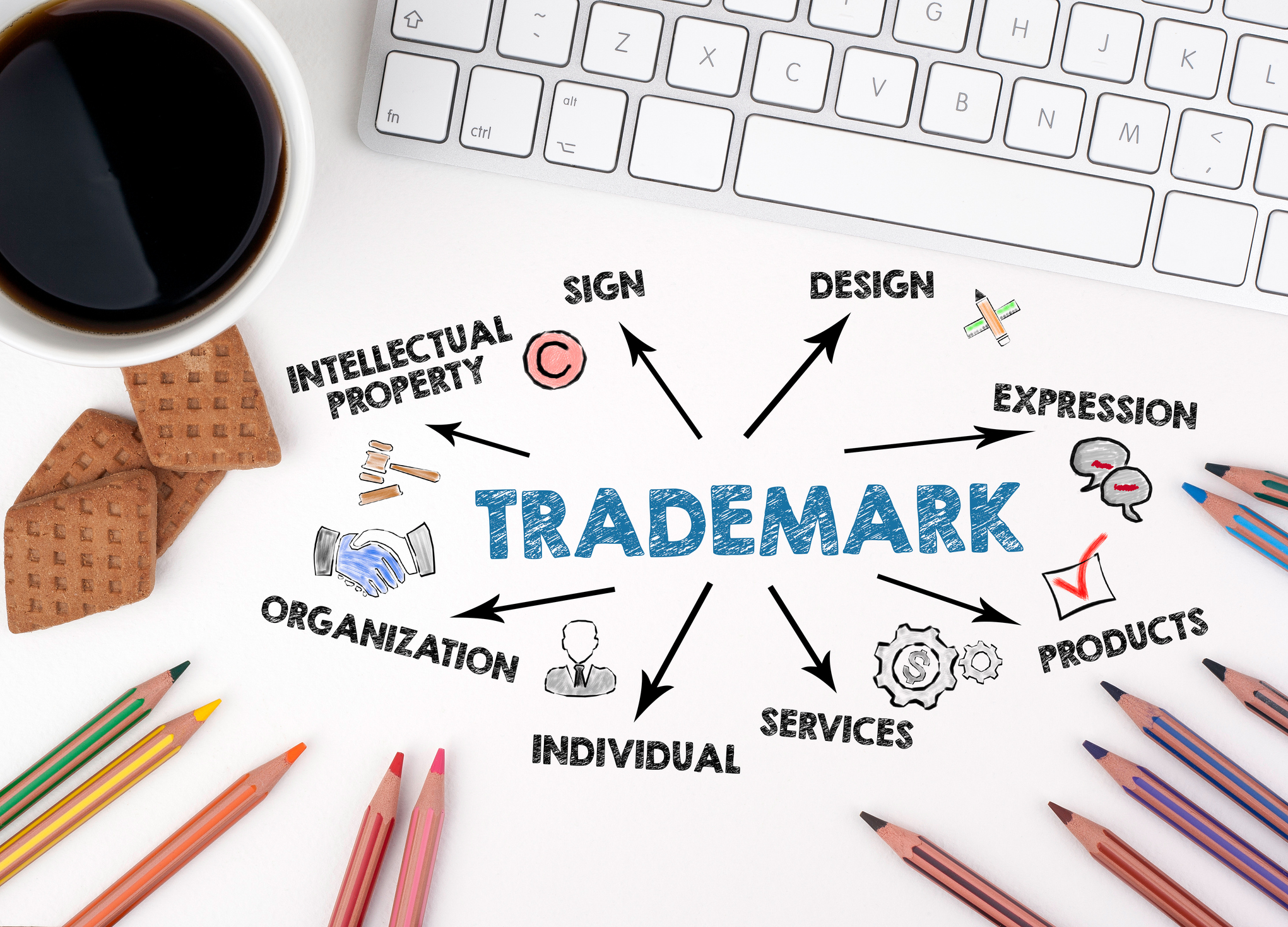Let’s face it, insurance and creativity are not normally two words spoken in the same sentence. That is, until you introduce marketing and branding into the discussion. Actions, such as designing your agency logo, creating slogans or taking out an ad in the newspaper, help create a distinct identity in the marketplace and leave a lasting impression with customers by fostering trust, credibility and loyalty.
After putting in the hard work to create a brand identity and to develop goodwill associated with your business, it would be an awful shame if somebody came along and copied what you did to develop their own business without your permission, right? That is why there are mechanisms to help protect your ideas—otherwise known as intellectual property—and to protect others when you might be infringing on IP that does not belong to you.
While this part of your business operations can be fun, there are a host of considerations that must be made when creating marketing and branding material for yourself or your insurance agency to protect your own IP, and to ensure you are not infringing the IP rights of others.
Trademark
Developing an insurance agency name, logo and any other branding elements are some of the first steps of business creation. They will be included in any marketing materials pushed out to the public. Luckily, under federal law, a form of IP called a trademark is available to help protect this form of branding.
Trademarks can be any word, phrase, symbol, design or combination of these that identifies both goods and/or services in the marketplace.[1] A trademark is how customers distinguish you from your competitors.[2] It identifies the source of your goods or services; provides legal protection for your brand; and helps you guard against counterfeiting and fraud.[3] If your independent insurance agency offers distinctive services, you can consider registering service marks to protect the branding of them.[4]
Registering a trademark is a relatively straightforward process. However, for complex cases or to ensure proper handling, many businesses seek assistance from trademark attorneys or legal professionals. It requires conducting a trademark search to make sure your mark is unique and not already in use; application to the United States Patent and Trademark Office; and examination, publication, registration and subsequent maintenance of your mark.
Trademark ownership also requires active monitoring and enforcement of your trademark rights to help prevent others from using similar marks that could confuse consumers or dilute your brand.[5] Failure to do so can lead to claims that you have abandoned your trademark or that the mark has become generic and thus not protectable. Trademarks also need to be periodically renewed.[6]
Trademark ownership is a fundamental aspect of business strategy, marketing and brand management. It provides essential legal protections, supports brand development and recognition, and contributes to the long-term success and profitability of a business.
Copyright
Another form of intellectual property that protects original works of authorship as soon as they are fixed in a tangible form of expression is called a copyright.[7] Under the law, there are many different types of works that are protected by copyright, including, but not limited to, paintings, photographs, illustrations, musical compositions, sound recordings, computer programs, books, poems, blog posts, movies and even insurance policies![8]Copyright protects expression, but not ideas, procedures, methods, systems, processes, concepts, principles or discoveries.[9] Anyone can be a copyright owner—once an original work is created and fixed (i.e., by taking a photograph or writing a blog post), you become the author and owner.[10] Companies and other organizations also can be copyright owners.[11] The law even allows for ownership through “works made for hire” by employees who created works within the scope of employment, works created by independent contractors or certain types of commissioned works.[12] You also can obtain ownership of a copyright by contract through certain transfers like assignments or wills/bequests.[13]
As part of an insurance agency’s marketing efforts, the creation of promotional content is likely. Advertisements, brochures and websites created by insurance agencies often are protected by copyright law, therefore the agency owns the rights to these specific works, and it can be afforded protection from unauthorized use.
Additionally, policy documents and proprietary software are eligible for copyright protection. While concepts and terms of policy documents themselves are not protected by copyright, the specific language and presentation of a written policy may be. And, if an insurance agency develops custom software for managing policies or claims, that software can be protected by copyright law.
If an agency decides to use content that is created externally (e.g., images, videos or articles), it is essential to make sure all the proper licenses and permissions—including the right to use any third-party IP such as software, music or artwork—have been secured for use. If you are conducting any collaborations with influencers, or when using social-media platforms, you should clarify and document all rights to any content created and shared. If for any reason there is sponsored content in your marketing, make sure all advertising regulations and disclosure requirements have been adhered to. Creating original content, or acquiring these appropriate rights, helps to avoid potential copyright infringement claims.
Obtaining federal copyright protection is relatively straightforward. A completed application must be submitted to the United States Copyright Office with the requisite copies of your work (dependent on the category of the work being submitted), and a fee.[14]
Other considerations when marketing your business
Web domain names. In terms of marketing efforts, having a strong online presence is crucial. Hand-in-hand with developing your business’s branding and protecting it by trademark, it is essential to secure domain names that align with your brand. Owning a domain name that matches your agency’s name helps protect your brand, and it prevents competitors or malicious actors from using a similar domain that could confuse customers or tarnish your reputation.
When choosing a domain name for your agency, avoid using names that might infringe on existing trademarks or cause confusion with established brands. Cybersquatting is a crime. Registering or using a domain name to profit from a trademark, corporate name or personal name of an individual is illegal and trademark owners can sue you in federal court under the Anticyber-squatting Consumer Protection Act.[15] You also should monitor and protect your own online content against such unauthorized use or replication. There are many digital rights-management tools available to help your business.
Advertising requirements. While not necessarily falling under the scope of federal IP rights, it is essential that when marketing a business, any claims or representations made in advertising are accurate and not misleading. Truth in advertising is regulated heavily on the federal level by the Federal Trade Commission—when it finds a case of fraud perpetrated against consumers, the FTC files actions in federal court for immediate and permanent orders to end scams, prevent fraudulent actors from further perpetrating scams, freezing assets and obtaining compensation for victims.[16] In addition, many state insurance departments have strict rules regarding what insurance agents can and cannot say in advertisements. For example, in many states it is against the law to name an insurance company in an advertisement without also including the business address of that insurance company. Misleading advertising can lead to legal disputes and can damage your reputation severely.
Additional steps
Despite learning about the ways you can protect your IP, and how you can take action to prevent the infringement of others’ IP rights, you still may want to take extra precautions to protect your agency.
Consider IP insurance, which is designed to protect businesses from financial losses associated with IP disputes and infringement. IP insurance can cover the legal costs associated with IP infringement defense and enforcement, IP asset protection, copyright/trademark infringement and contractual obligations—including attorney fees, court costs and settlements or judgments.
Be as creative as you can be in your marketing efforts for your insurance business. Develop your branding, send out your brochures and daily email blasts, create that jingle that will be permanently locked in the brains of locals for generations to come. However, be creative while also being mindful of your rights in the content you are creating, as well as the rights of others.
Complying with these IP laws and taking the time to develop robust IP protection helps secure your marketing investments; helps preserve your brand’s uniqueness and goodwill in the marketplace; and helps minimize legal risks—all of which are crucial for effective and sustainable marketing in the competitive insurance industry.
This article originally appeared in the October 2024 issue of PIA Magazine.
[1] U.S. Patent and Trademark Office
[2] Ibid.
[3] Ibid.
[4] Ibid.
[5] U.S. Patent and Trademark Office
[6] Ibid.
[8] Ibid.
[9] Ibid.
[10] Ibid.
[11] Ibid.
[12] Ibid.
[13] Ibid.
[15] American Bar Association, 2016

Danielle Caswell, Esq.
Danielle Caswell earned her bachelor’s degree from New York University and her law degree from Brooklyn Law School with a particular focus on intellectual property, information, and media law. Previously, Danielle was an associate at a law firm in New York City where she focused primarily on intellectual property and entertainment-related transactional and litigation matters.





